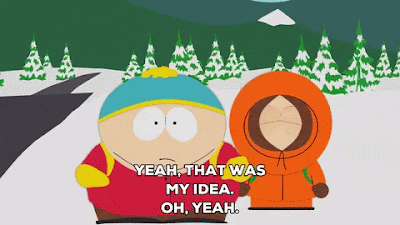Capitalism only works if there is competition
Everything I'm going to write here seems painfully obvious to me, but apparently is not well known.
I've read many recent articles and comments that seem to herald "free market capitalism" as the answer to every problem in society.
They all seem to miss one critical factor though.
Capitalism only works if there is competition.
This seems like a very simple, bland, undeniable statement, and yet as I write it, I hear the collective sound of thousands of people picking up their torches and pitchforks and heading in my general direction.
So -- Who disagrees with this statement? Please put up your hands.
Now, how many of you that raised your hands understand economics?
And I don't mean the philosophy or political nature of economics.
I've read Atlas Shrugged cover-to-cover and I'm not talking about the type of "political economic philosophy" introduced there.
I'm talking about straight up basic Microeconomics and the theories, math, and pretty graphs that go along with it.
I've heard people ask, "Don't you believe in the free market?"
Free market capitalism is not a belief or religion. It's a system based on a set of theories with clearly defined variables and equations.
So before you start advocating "free market capitalism" as a solution to a particular problem, please be sure that you understand the underlying assumptions and principles.
First, let's define some words so we're clear.
Capitalism: Let's use the Webster's dictionary definition: "an economic system characterized by private or corporate ownership of capital goods, by investments that are determined by private decision, and by prices, production, and the distribution of goods that are determined mainly by competition in a free market"
Capitalism only works if there is competition.
Are you convinced yet? I understand if the dictionary definition on its own is not enough.
Instead, let me tell you a story about a basic capitalist free market economy.
...
A long time ago, in a galaxy far away, there was a city called Galt.
In Galt, everyone needed apples, because as one knows, "an apple a day keeps the doctor away."
At the beginning of our story, there were 5 apple farms that supplied the city. Each one was owned and operated by a 30-year old man who inherited the farm from his father.
Farms A, B, C, D, and E had similar land, tools, and equipment. Each owner had similar education and intelligence.
Each farm produced 100 apples per week at a cost of $100.
There were 50 residents that each consumed 10 apples per week.
This led to a market clearing price of $1 per apple.
Each producer was able to pay their expenses (but made no extra profit).
Consumers were able to purchase their apples at cost.
Everyone was happy for a few years.
Then, in Year 3, Farm D was destroyed by a wildfire. With no insurance, it was financially ruined and sold in a bankruptcy hearing.
The owner of Farm A had recently inherited money from a rich relative and was able to buy the land, which was ready to cultivate the following year.
In Year 4, Farm A had now doubled in size, and as a result of economies of scale was now able to produce 200 apples at a cost of only $150.
Farm A continued to sell their apples at $1, and made a profit of $50 each week, while the other farms continued to only cover their costs.
At the end of the year, Farm A was able to use their profits to invest in some better irrigation and fertilizer that allowed them to now grow 300 apples on the same amount of land.
In Year 5, Farm A started selling its apples at $0.95 per apple.
This was great for apple consumers since they were now getting the same apples for less money!
Farms B and C decided to drop their price to $0.95 to stay competitive. Farm E kept their price at $1.
As a result, nobody bought Farm E's apples, and they quickly went bankrupt.
Of course, Farm A used its profits to purchase Farm E, and through a combination of scale and technology was now able to produce all 500 apples that the economy demanded.
In Year 6, Farm A dropped its price to $0.50 per apple -- below the cost of production. This move was quickly matched by Farms B and C.
More apples were produced than needed, and 200 apples were discarded to rot.
This again was heralded as a victory for consumers, who had seen their apple budget plummet and were now able to spend more on beets and plums.
Of course, Farms B and C were now losing 50% on every apple they sold. After a few years, they both went bankrupt and were acquired by Farm A.
Farm A did some market research and determined the maximum amount a consumer would pay for an apple, which was $5.
Farm A set the price of apples at $5.
Consumers felt cheated and were very angry, but had no choice since there was no more farmland, and it would have cost even more to import apples from somewhere else.
The owner of Farm A made so much money he piled it all in a vault so he could swim in it.
...
So why do we have anti-trust laws, environmental regulations, public services, and many other economic constructs that aren't "pure free market capitalism?"
A lot of it boils down to a simple, undeniable, unavoidable economic truth:
Capitalism only works if there is competition.
P.S. Stay tuned! My next post will tackle Communism.





Comments
Post a Comment